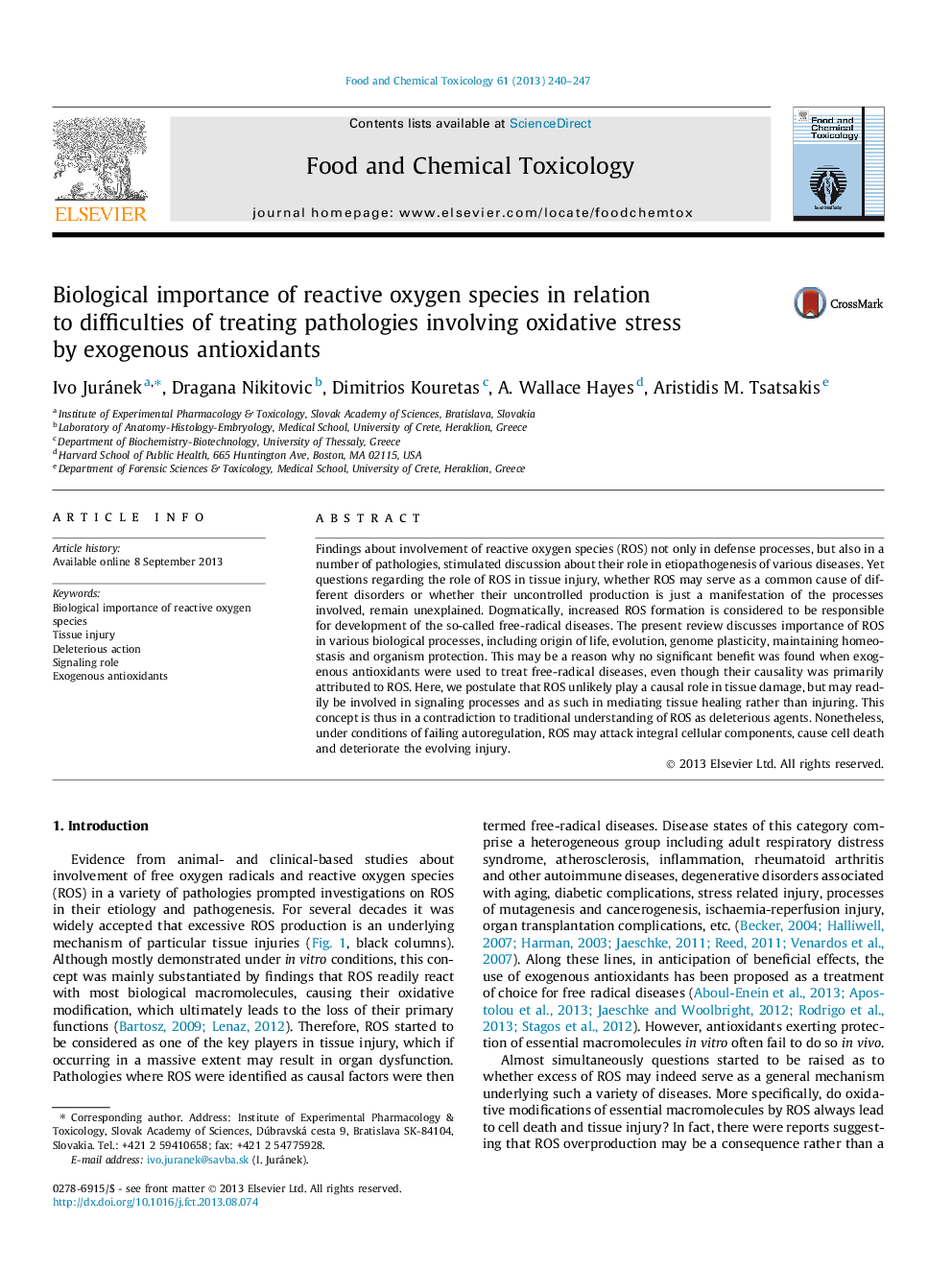| Article ID | Journal | Published Year | Pages | File Type |
|---|---|---|---|---|
| 2585187 | Food and Chemical Toxicology | 2013 | 8 Pages |
•Reactive oxygen species (ROS) are deleterious to essential biomacromolecules.•Yet, starting from life origin and evolution, ROS are involved in various physiological processes.•Many clinical trials failed to treat free-radical diseases by antioxidants likely due to affecting these critical processes.•A concept of positive signaling role of ROS, formed as a result of tissue injury, is discussed.•Undesired effects of ROS should be targeted exactly, at concrete sites of ROS production.
Findings about involvement of reactive oxygen species (ROS) not only in defense processes, but also in a number of pathologies, stimulated discussion about their role in etiopathogenesis of various diseases. Yet questions regarding the role of ROS in tissue injury, whether ROS may serve as a common cause of different disorders or whether their uncontrolled production is just a manifestation of the processes involved, remain unexplained. Dogmatically, increased ROS formation is considered to be responsible for development of the so-called free-radical diseases. The present review discusses importance of ROS in various biological processes, including origin of life, evolution, genome plasticity, maintaining homeostasis and organism protection. This may be a reason why no significant benefit was found when exogenous antioxidants were used to treat free-radical diseases, even though their causality was primarily attributed to ROS. Here, we postulate that ROS unlikely play a causal role in tissue damage, but may readily be involved in signaling processes and as such in mediating tissue healing rather than injuring. This concept is thus in a contradiction to traditional understanding of ROS as deleterious agents. Nonetheless, under conditions of failing autoregulation, ROS may attack integral cellular components, cause cell death and deteriorate the evolving injury.
Graphical abstractFigure optionsDownload full-size imageDownload as PowerPoint slide
